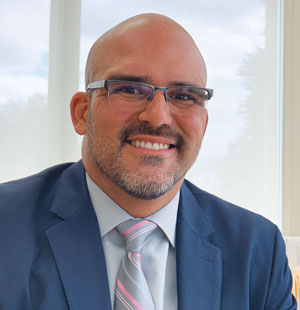
Rudy’s Experience wasn’t just about circuits and code.
Rudy demonstrated remarkable problem-solving skills and communication strength while using his AAC device. Faced with the challenge of identifying a jellyfish—a term without a dedicated icon—Rudy creatively navigated to his "Foods" page to select “jelly” and then to the “Animals” page to find “fish,” combining the two to successfully label the image. His ability to make connections and adapt using the tools available highlights both his growing language skills and cognitive flexibility. Way to go, Rudy!
At Alpha School, we believe hands-on STEM learning is a powerful equalizer. Adaptive tools, creative lesson design, and purposeful community partnerships allow students of all abilities to explore, experiment, and innovate. Here’s how—and why—STEM belongs at the center of special needs education.
Why STEM Matters for Learners with Disabilities
1. Universal Problem-Solving Skills
Building a bridge from Popsicle sticks or debugging a block coding game teaches perseverance, sequencing, and critical thinking skills that can be applied to daily living tasks and future employment.
2. Multi-Sensory Engagement
STEM projects naturally combine visuals, movement, and tactile exploration. Students who struggle with traditional lecture formats can feel the concept of force through a marble run or see math patterns emerge in a LEGO tower.
3. Immediate Feedback & Motivation
Whether a robot moves or a volcano erupts, the results are instant. Quick feedback motivates students who may have experienced frequent academic frustration elsewhere.
4. Pathways to Independence
Emerging fields from assistive tech design to data visualization value diverse thinkers. Early STEM exposure plants seeds for meaningful careers and self-advocacy.
Accessible Tools That Level the Playing Field
- Adaptive Coding Apps use drag and drop blocks or visual icons, making programming approachable for students with varied reading or fine motor abilities.
- Immersive Digital Science Labs (virtual or augmented reality simulations) let learners explore cell structures, planetary systems, or chemistry reactions in a safe, controllable environment.
- Alternative Access Robotics Kits can be paired with switches, voice commands, or eye gaze controls, ensuring mobility differences never limit experimentation.
- Online Collaboration Spaces provide a venue for remote design challenges or project showcases, so home bound or medically fragile students stay fully engaged with classmates.
These examples illustrate possibilities educators can tailor to each learner's unique needs, echoing our commitment to inclusive education. The right combination of tools will always depend on the goals outlined in a student's IEP and available resources.
Community Connections: STEM Beyond the Classroom
Real-world context reinforces classroom concepts. Schools often collaborate with local resources, such as maker spaces, community gardens, science centers, or university clubs, to give STEM lessons an authentic backdrop. Whether students observe a 3D printer in action, test soil samples in a nearby park, or log into a virtual Q&A with engineering majors, these experiences show that scientific inquiry happens everywhere and is open to everyone.
Such partnerships promote social interaction, creative problem-solving, and the understanding that disability never limits curiosity, values at the heart of our community-based curriculum.
Technology & Digital Platforms for Connection
Families play a pivotal role in sustaining STEM enthusiasm. Secure online portals and resource hubs make it easy for caregivers and educators to:
- Watch on-demand demonstrations of simple, household-friendly science experiments.
- Download visual supports and step-by-step guides that match each learner's communication style.
- Share successes and troubleshooting tips in moderated discussion boards.
These flexible digital tools complement resources such as our 4 Home Strategies to Boost School Success, giving families practical ways to reinforce STEM skills at home and at school.
Building Confidence and Community Within Our School
STEM learning strengthens more than academic skills—it nurtures communication, creativity, and collaborative spirit across our entire school community:
- Students gain hands-on experience solving real-world problems, boosting self-advocacy and independence.
- Educators and Therapists collaborate on interdisciplinary projects that weave speech, occupational, and behavioral goals into robotics, coding, and science labs.
- Families receive clear talking points and at-home activity ideas, creating shared moments of discovery that extend beyond the classroom.
These shared wins cultivate a culture where curiosity is celebrated, and every learner feels empowered to explore.
Partnering With Alpha School
- Child Study Teams & District Leaders: Access turnkey STEM modules aligned with NGSS standards and individualized IEP goals, complete with data tracking sheets.
- Parents and caregivers: Explore our online resource library or schedule an on-site visit to see accessible robotics and adaptive tech in action.
- Community & Industry Partners: Sponsor a project, donate materials, or mentor a class; we'll provide disability aware communication training and regular outcome reports.
Conclusion: Sparking Lifelong Curiosity
STEM isn't an optional "extra" at Alpha School; it's a core pathway to problem-solving, confidence, and future opportunities for students with disabilities. If you'd like a closer look at how we adapt science, technology, engineering, and math for every learner, contact us to arrange a tour or request our STEM program guide.

Alpha School a private special education school in New Jersey
Our mission at the Alpha School of Jackson, NJ, located just minutes off of Route 9 and Route 195 in Ocean County, is to help all of our special needs students with the learning, social, language, and behavioral support they deserve. Our highly skilled staff are committed daily to helping each student become the best they can while providing a safe and nurturing educational environment.
We would be more than happy to discuss your child’s specific needs and challenges, so please call us at 732.370.1150, with any questions. To get started, please contact your District's Case Manager.
— John Gonzalez, Principal-Alpha School, Jackson, NJ
